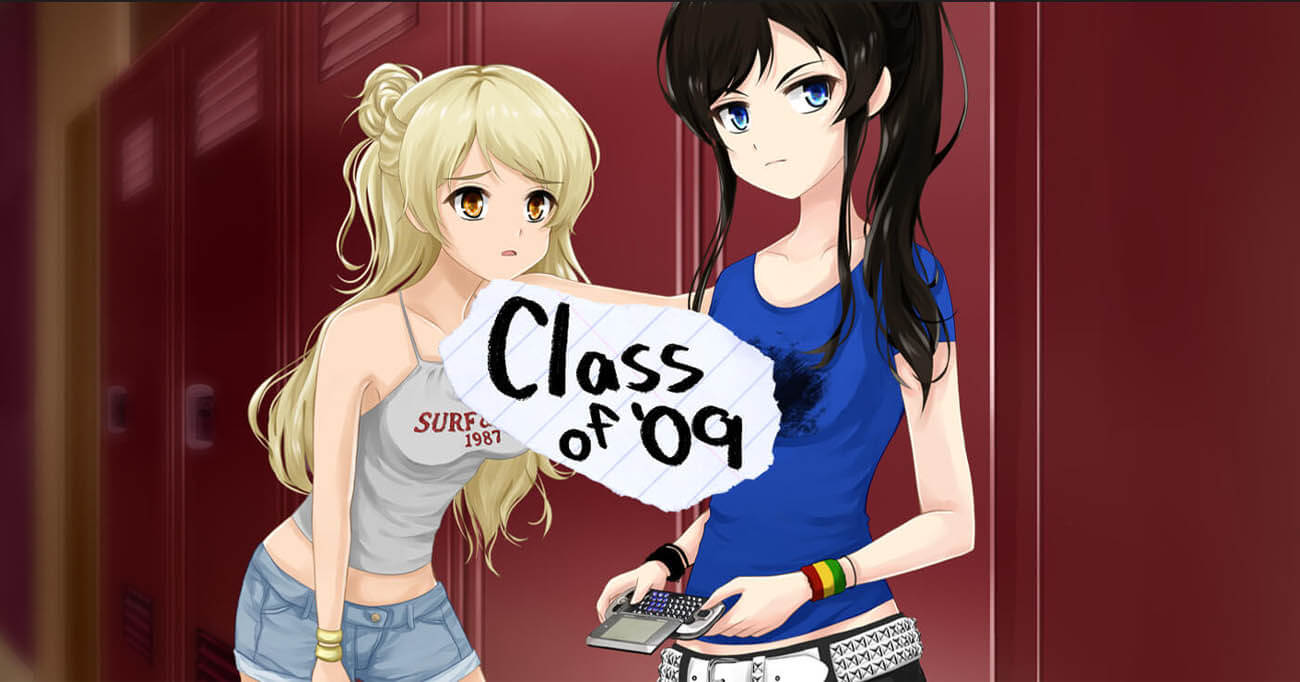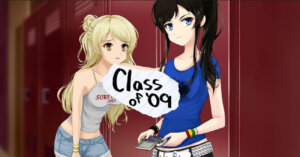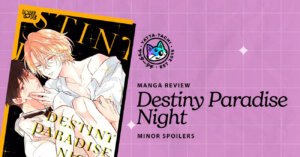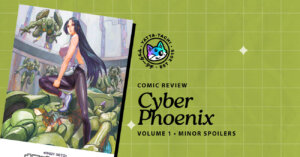The following article contains mentions of bullying, child abuse, and drug use; as the games reviewed touch on these subjects.
Spoilers ahead for the Class of ’09 games.
The amount of time you spend thinking about societal collapse will directly correlate to how much you appreciate the Class of ‘09 games. As someone who spends a “normal” amount of time thinking about 9/11 and how its socio-political aftermath is directly responsible for making the lives of people my age demonstrably worse, I really liked the Class of ‘09 trilogy! I struggle to think of other pieces of media that so effortlessly make me sympathize with its leads, while also perfectly articulating how they contribute to their own suffering as much as the world around them does. These games explore the millennial experience with such hilarity and brutal honesty that I can’t help but connect with them and think they’ll resonate with anyone close to this age group.
To back it up a little, the Class of ‘09 games are a series of visual novels that focus on teenagers living in the greater Washington D.C. area who are set to graduate high school in 2009. The games are written by YouTuber and content creator SBN3/Max Field, with the latter two games being published by Wrath Club. While stylized as a send up, as the games are hyper critical of the male and nerdy audience that’s stereotypically associated with visual novels, the Class of ‘09 games fit pretty cleanly into the medium. As a player, you’ll make a handful of choices in each game to see the different story routes and endings.
Like most visual novels, Class of ‘09 makes up for its limited mechanics by going above and beyond with its writing, visuals, and voice acting. These will make up the focus of this review.
The Writing
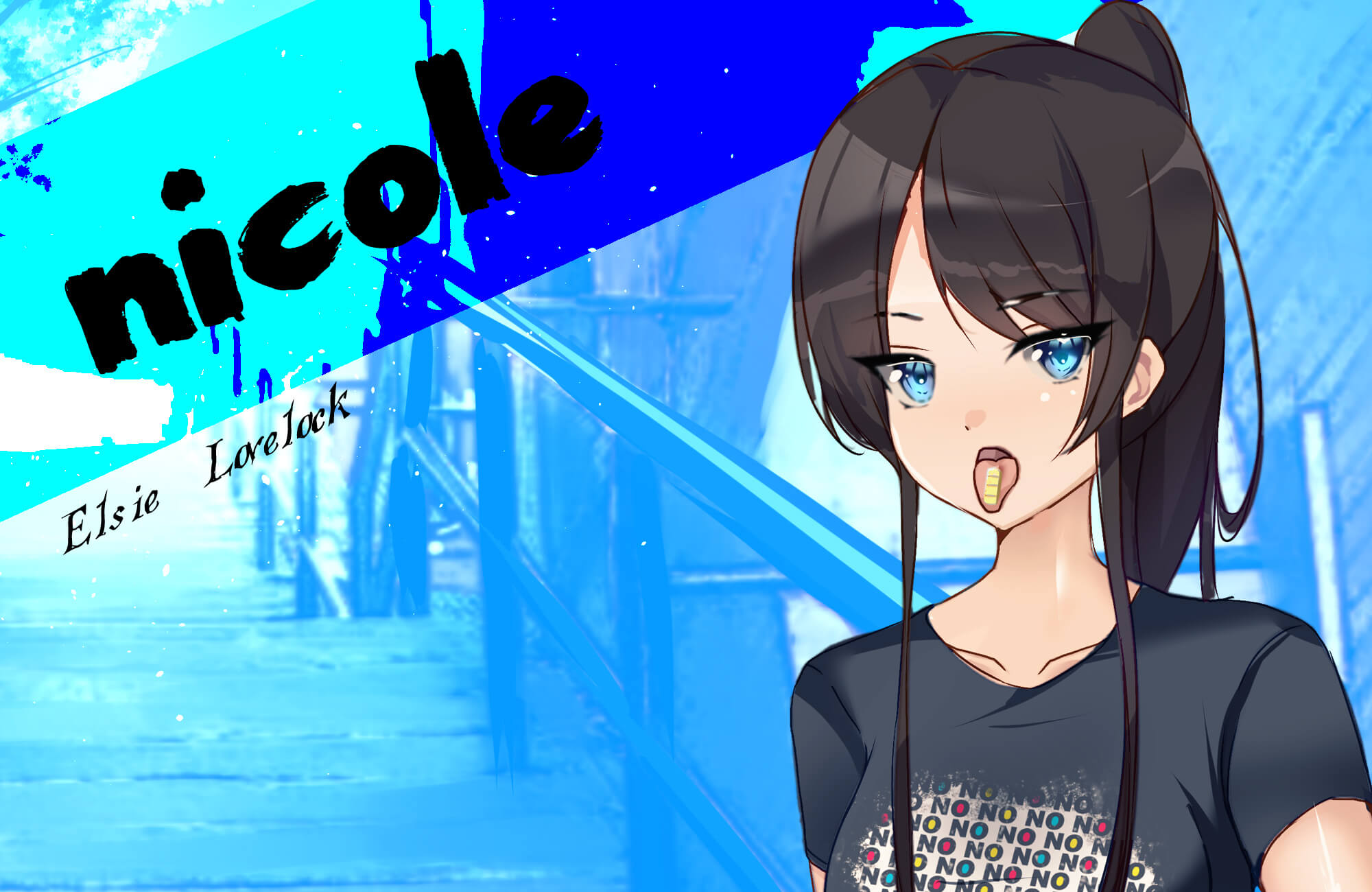
The first Class of ‘09 game released in 2021 to little fanfare until clips of the game started blowing up on Tik Tok and other social platforms. This grassroots popularity can be attributed to the game’s memetic writing, which I can only describe as being as crass and as accurate to life as the dialogue in South Park but not made by millionaire libertarians detached from most people’s lived experiences.
The Class of ‘09 games follow Nicole and Jecka, two high school girls who are just old enough to realize how much the world sucks and how objectified they are as young women in it, but too young and too exposed to terrible people to have any kind of healthy coping mechanisms. Nicole in particular can be a sardonic delight in the first game; she spends most of it pointing out how terrible the men around her are, as well as the systems that empower them. A frequent target of these tear-downs is a supporting character named Jeffrey, who is every cliche about young men who are way too into anime compiled into a single character. As someone who has spent far too much time wading through the most toxic parts of the anime community and having to deal with its worst actors, I felt catharsis every time Nicole or Jecka took him down a peg.
That said, the writing doesn’t stop at just being an exploration of how much it sucked to be a teenage girl in the 2000s. The second game, The Re-Up, focuses on the damage Nicole does to the people around her, many of whom are more marginalized than she is or in worse life circumstances. Then, in The Flip Side, Jecka becomes the lead and we see her life imploding thanks to her abusive father and the 2008 financial crisis.
There’s an argument to be made that the second two games in the Class of ‘09 trilogy feature cynicism and shocking events purely for their own sake. I can’t blame anyone for reacting this way to the games; however, I think something else is happening here. In the first game the main characters, Nicole, Jecka, and technically Jeffrey, are critiqued by those around them, but are ultimately painted as sympathetic. The second game then goes into great detail on how they are imperfect and even damaging presences in other people’s lives. Then, in the third game, we see that they are all suffering under their shared society, and that they have no chance of escaping their childhood unscathed.
Taken together, these games paint a detailed picture of the melancholy that affects many of the millennials in my life. These are broken people who are destined to suffer. Even if they deserve all the sympathy in the world, their capacity for internal and external harm makes it hard to support or even like them. There’s a robustness to the game’s writing that captures the experience of being a young person in the shadow of 9/11 better than any other media I can think of.
The Visuals

The visuals of the Class of ‘09 are much more simplistic than the writing, but no less endearing. The character designs feel like they’re pulled straight out of “learn how to draw anime” instructional books that were just starting to grace store shelves in the 2000s. Characters are also wearing off brand versions of graphic tees and hoodies I remember many of my classmates wearing when I started attending high school in 2010. Class of ‘09’s visual accuracy and familiarity with the 2000s makes its critique of that time period feel that much more informed and biting.
An aesthetic choice that I feel like was made specifically for me is that the backgrounds in Class of ‘09 are slightly artifacted still images of real world locations. Every part of the game that takes place in a mall has a backdrop of a slightly janky real world mall. This is also true for the scenes in a school, generic middle-class home, etc. It reminds me of how older network anime blocks, like Kids WB and Fox Kids, would promote themselves via original advertisements featuring anime characters superimposed onto different backgrounds. Evidently, I’m nostalgic for this very niche visual direction, as I really like the way these games look.
Admittedly, the visuals are likely more of a practical decision than anything else. But the look of the Class of ‘09 games are fun, affecting, and more than serviceable for the story these games are telling.
The Voice Acting
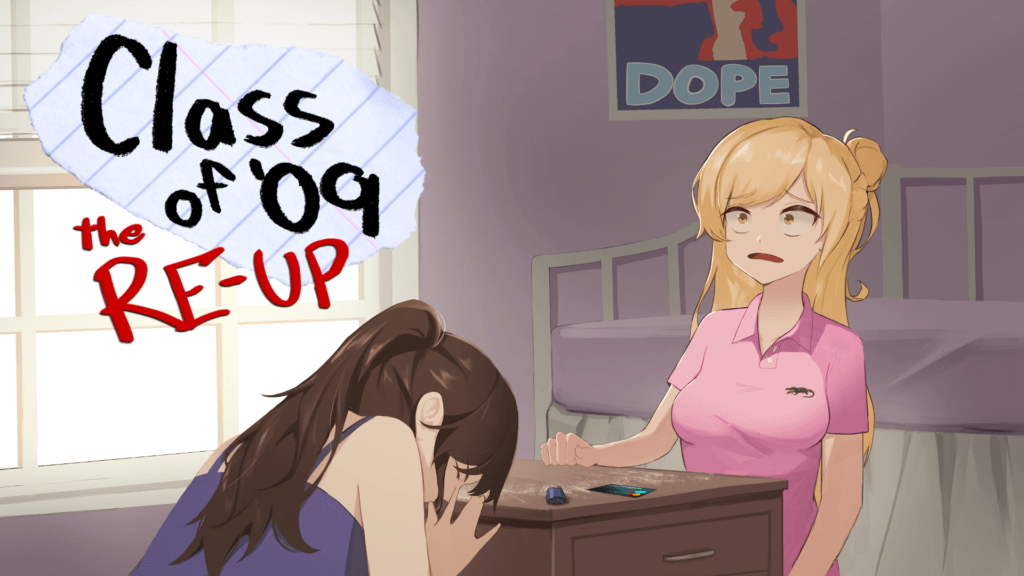
The voice acting in the Class of ‘09 games is nothing short of top notch, and I have to believe that the very public and online profiles of its cast are a factor in this success. Nicole and Jecka are voiced by Elsie Lovelock and Kayli Mills respectively, who are not just terrific voice actors but also have an extensive background as online content creators. I’m not sure if it’s because they were both young people on the internet during the stretch of time when this game takes place, or if it’s because there’s a fair amount of old school YouTube/Newgrounds style humor in these games, but their performances make clear that they both understood the assignment.
Elsie Lovelock fills every line of Nicole’s with the perfect amount of apathy and sarcasm. Her delivery is dripping with a meanness, spitefulness, and wounded cruelty that adds so much to the character. Meanwhile, Kayli Mills uses more of a vapid affect to fill Jecka’s lines with a feeling of detachment. Feeling unmoored from reality and the people around you is a big part of the millennial malaise, and her performance keyed me into this game being about more than just Euphoria-style teenagers living in the aughts.
Other voice actors of note from digital spaces also appear in this game. Kira Buckland plays the supporting character, Ari, and does a great job making a trepidatious character explode into startling emotion at key parts of the story. SBN3/Max Field voices Jeffrey himself and uses the performance to absolutely roast the worst kinds of anime fans. I’m a big fan of media that calls out toxic nerds or soft-boy misogynists, like No More Heroes and Scott Pilgrim, and I love how the game’s creator portrays Jeffrey as pitiable but also entitled and uncomfortable.
These performances are critical to Class of ‘09’s virality and success, and the fact that this trilogy is a small-scale hit is a testament to how perfect they are for the tone and focus of these games.
The Verdict
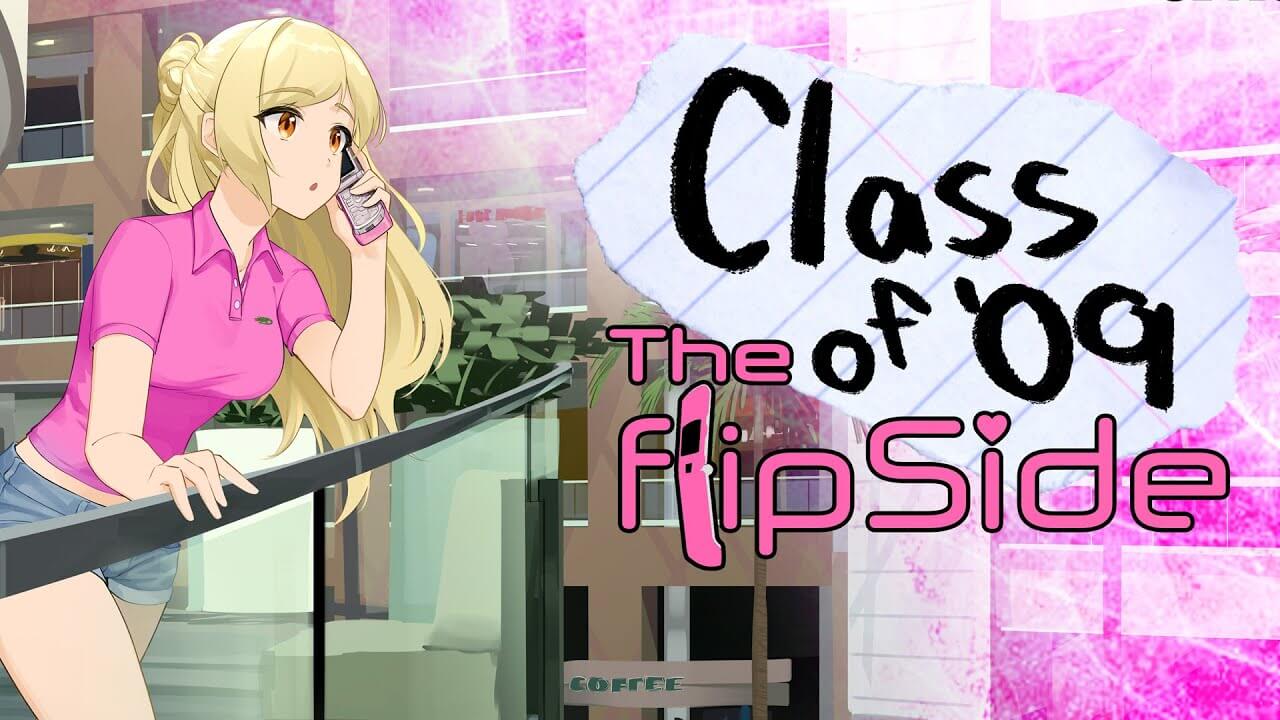
If you were a teenager at any point during the late aughts, I’d strongly encourage you to play the Class of ‘09 games. Beyond validating some of my own lived experiences, these games critiqued and challenged people, attitudes, and ideas that have been a big part of my life. These games are not for everyone, but, if they hit home, they’re going to hit hard. I know I’m going to be thinking about Class of ‘09 for a long, long time.
Note: The author received a review code for the third game in the Class of ’09 trilogy from the creator, Max Field/SBN3. The author purchased the first two entries in this series prior to the third game’s release.

Featured Sponsor - JAST
The sweetest romance and the darkest corruption, the biggest titles and the indie darlings; for visual novels and eroge, there's nowhere better.
Big thank you to our supporters
From their continous support, we are able to pay our team for their time and hard work on the site.
We have a Thank-You page dedicated to those who help us continue the work that we’ve been doing.
See our thank you page